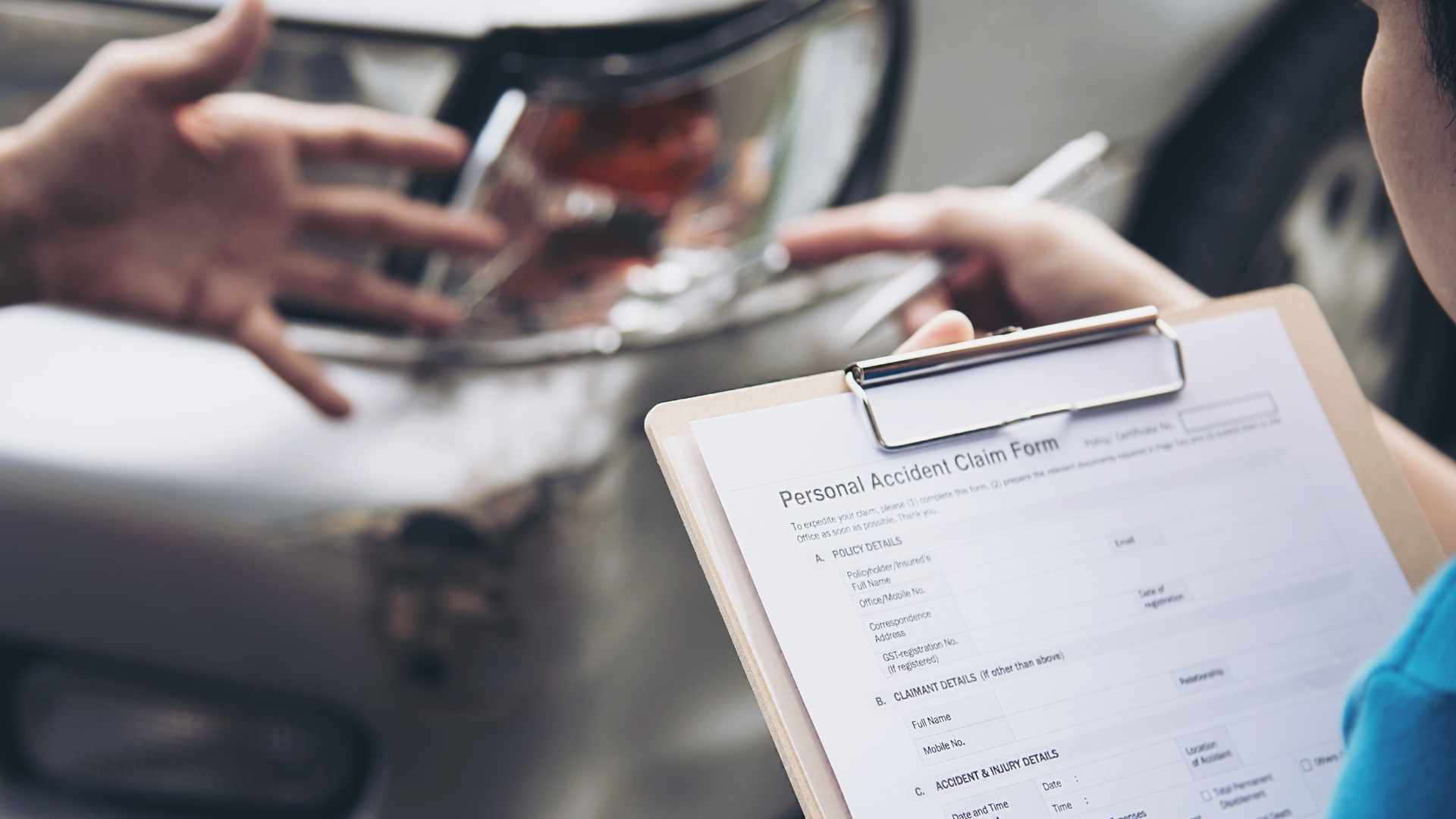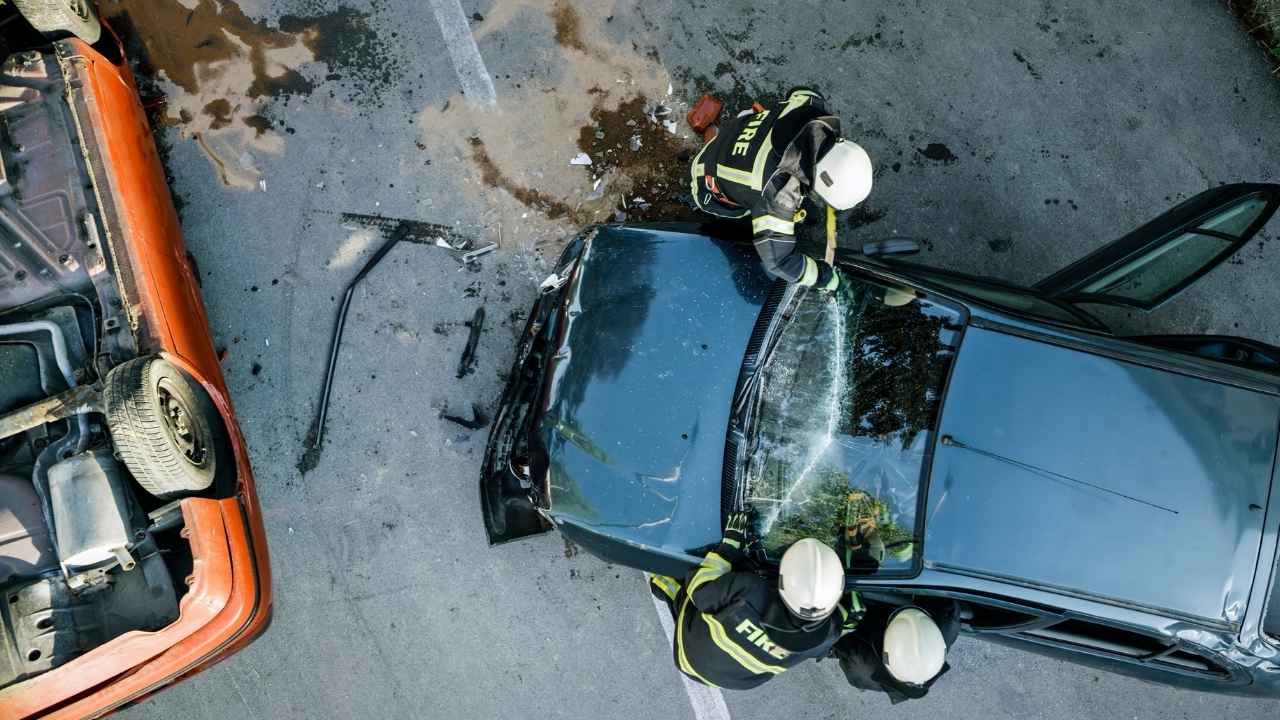A car is a total loss in California when it is irreparably damaged or when the cost of repairing it is greater than the car’s value. Even an accident at low speeds can damage a car beyond repair. In addition, a vehicle can be irreparably damaged because of water damage, fire, and other harm.
If your car has serious damage, it’s important to understand when a car is considered a total loss. If your car is a total loss, you need to know what happens next and how, as part of your personal injury claim, our California car accident lawyers can help you take those next steps. Below, we’ll explain what a total loss means for your vehicle.
Understanding Total Loss Vehicles in California
Determining whether a car is considered a total loss is often state dependent, so it’s important to note that the following information specifically applies to vehicles in the state of California. Below are some answers to frequently asked questions about total loss vehicles.
What Is a Total Loss Car?
California declares a vehicle a total loss if the cost of repairs and the salvage value exceeds the actual cash value of the vehicle. In other words, is the vehicle worth the cost to fix it? If the answer is no, the vehicle is a total loss. (California DMV, Total Loss Salvage & Non-Repairable Vehicles) For example, if you own a car whose market value is $3,000 and repairs would be $4,000, then your car would be considered a total loss.
What Is the California Total Loss Car Law?
California Vehicle Code § 544 defines salvage vehicles. A vehicle is a salvage vehicle or “total loss” when it meets either of the following criteria:
- The vehicle has been wrecked, destroyed, or damaged so badly that the leasing, lending, or insurance company considers it uneconomical to repair the vehicle. The vehicle is not repaired following the damage.
- A vehicle that is not worth repairing and for which an insurer has made a total loss payment. The insurer and claimant agree on a total loss settlement and report the total loss to the Department of Motor Vehicles for a salvage title.
Unlike California, some states have a specific percentage threshold in their law. For example, in these states, a vehicle may be considered a total loss when the cost of repairs is 75% of the vehicle’s value. However, even in states that have these laws, an insurance company may use a different formula to decide what to do with badly-damaged cars. California doesn’t have a threshold percentage. Instead, they declare a vehicle a total loss, salvaged vehicle if it is destroyed to the point that it is uneconomical to repair.

It’s free to speak with us and learn the value of your case today.
Call Us NowWhat Happens to Total Loss Vehicles in California
If your insurance company declares your vehicle a total loss, they pay you for the value of the vehicle before the crash minus any deductible that applies to the policy. They then take possession of the vehicle and apply for a salvage title.
What Are My Options If Your Vehicle Is Declared a Total Loss?
If a vehicle is declared a total loss in California, turning it over to the insurance company and accepting a cash payment is one of the options you have. While it is the most common option that people take, there are other things that you can do.
If you want to keep the vehicle, you probably can. Expect a lower payment from the insurance company since they will deduct the vehicle’s salvage value. Then, you can decide what to do with the vehicle. Some options include scrapping it for parts yourself, keeping it for sentimental value, donating it to charity, or having the vehicle repaired at your own expense.
When the owner keeps the vehicle, they must notify the DMV of the loss within 10 days of settlement of the insurance claim. They must pay a nominal fee. The DMV will issue a salvage title for the vehicle. There are rules and regulations for repairing a salvage vehicle if you intend to return it to the roads. You must conduct repairs and provide receipts to verify that the parts used were obtained legally. The vehicle must also pass a safety inspection.
Do I Still Have to Pay Your Vehicle Loan If Your Vehicle Is a Total Loss?
Unfortunately, yes. Even if your vehicle is a total loss, you must still pay your vehicle loan. However, you may have purchased GAP (Guaranteed Asset Protection) insurance to protect your vehicle in the case of theft or damage. If this was the case, your GAP insurance essentially covers the remaining cost of your loan minus the payout from your insurance for the total loss.
However, having a vehicle declared a total loss does not terminate your motor vehicle loan. So, you will be stuck with that bill if you don’t have GAP insurance (or an equivalent).
What Type of Insurance Coverage Pays for a Total Loss Vehicle?
When you’re in an accident, and your vehicle is a total loss, there are multiple types of insurance coverage that may pay compensation depending on your exact situation:
- Property damage/liability insurance: The other party’s insurance that covers damages if they are at fault for an accident
- Comprehensive: Covers damages that are not the result of a crash like damage from weather, vandalism and theft
- Collision: Covers damage from a crash with an immovable object or with another vehicle when the other driver is not at fault
- Uninsured or underinsured motorist: Steps in to cover damages when the liable party doesn’t have insurance or enough insurance
There may be several avenues for getting compensation for a total loss vehicle. It’s important to investigate and look at all the options. If you were also hurt in the accident, one of our car accident lawyers can go through your options with you and offer guidance on the best next steps for you to take.
How Do Insurance Companies Value My Car?
Typically, an insurance adjuster will do an initial appraisal of the damage to your car. If they deem it a total loss, they will next appraise the vehicle itself to find a cash value. The damage done to the car will not affect this appraisal.
After the insurance adjuster appraises the car, they will base their offer on the appraisal. When the insurance company appraises your vehicle, they look at its actual cash value (ACV) rather than the cost to replace the car. This can mean that you will be left without enough money from your claim offer to buy another vehicle. ACV can involve a few factors, including wear and tear on the vehicle, mileage, cosmetic issues, and even local supply and demand for this type of vehicle. So, if you have a relatively new vehicle in excellent condition before the accident, you will get a much higher ACV than an older model.
What Can You Do If You Disagree With the Insurance Company’s Salvage Value of a Vehicle?
The insurance company’s first offer of a salvage value is unlikely to be their best offer. In some cases, you may disagree with the insurance company’s determination that the vehicle is a total loss, or you may dispute the value they want to pay.
If so, you can get your own appraisal and repair estimates. To do this, choose a reputable appraiser and a reputable mechanic so your information is as accurate as possible. You can then use this information to negotiate with the insurance company.
Ultimately, you may decide to keep the vehicle rather than turn it over to the insurance company. However, even if you keep it, you must negotiate compensation. It’s important to note that if you keep the vehicle, the insurance company will likely deduct the salvage value from your settlement, and you may have to deal with potential safety and legal issues if you decide to repair and drive the vehicle.
Finally, it’s important to be aware that you may file a legal claim if you feel you haven’t been compensated fairly. For instance, if you were in a car accident, you may have a claim against the other driver if they were at fault. This applies to both the loss of your car and any medical expenses resulting from the accident.
Legal Help for an Accident with a Total Loss Car in California
When an accident results in damage that makes a car a total loss in California, there’s also a good chance that there are serious physical injuries. It can be difficult to address all the issues that are present at once when you’re also treating physical injuries and stressed over your damaged vehicle. With over 400 5-star reviews, our client testimonials speak to our dedication to the well-being of our clients. Our law firm can look at all the issues to help you with your case and ensure that your questions are answered.
Contact us today for a free consultation about your claim.




